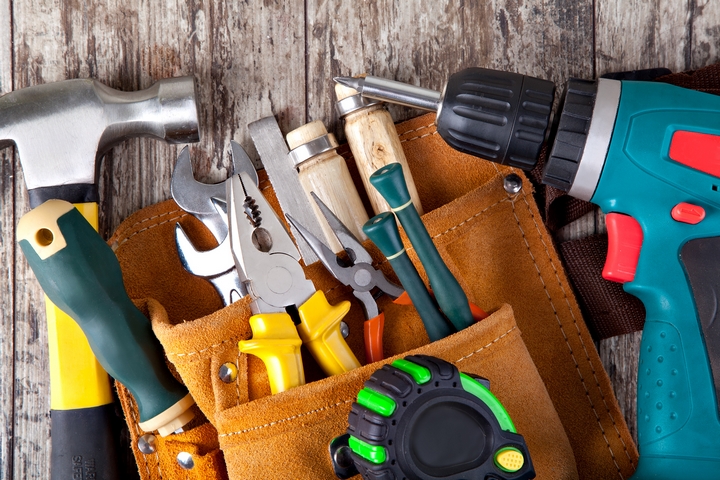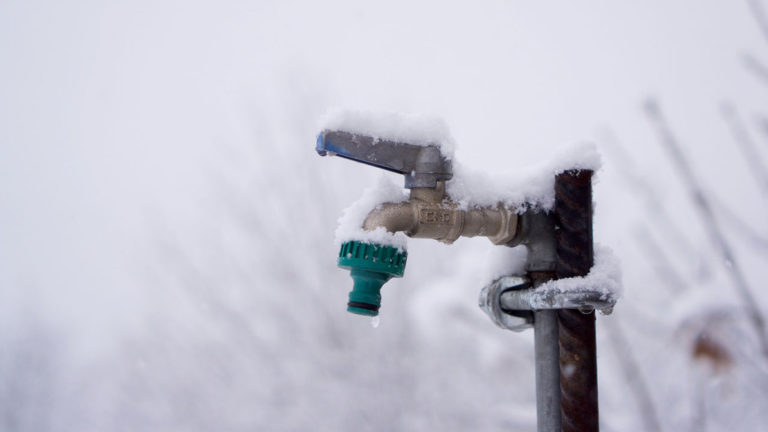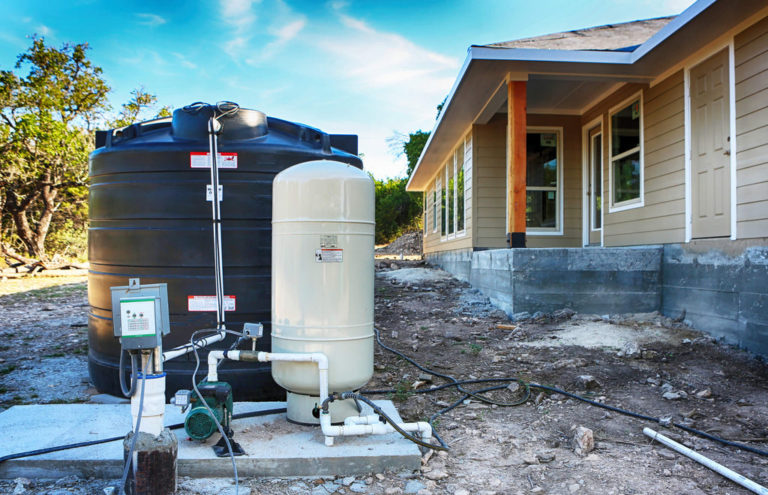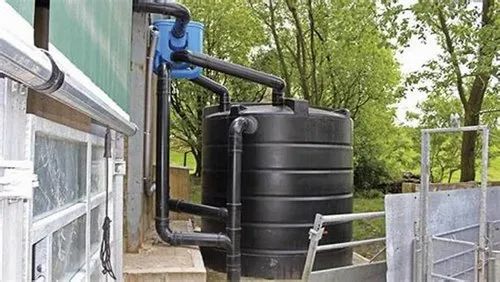As an off-gridder, you know the importance of being self-sufficient and prepared for any situation that may arise.
One important aspect of this independence is having the right plumbing tools to maintain your water supply and sewage system.
Whether you’re fixing a leaky pipe or unclogging a clogged drain, these essential plumbing tools will help you tackle any issue with confidence and ease.
From basics like pliers and wrenches to specialized items like augers and submersible pumps, we’ll cover the must-have tools every off-gridder should have in their kit.
Adjustable wrench
This tool is useful for tightening and loosening bolts and fittings on your off-grid plumbing system. Look for one that has a comfortable grip and a range of adjustable settings.
With the ability to tighten and loosen bolts and fittings, it can be used to secure and adjust various components throughout your system.
To ensure that you select the right tool for the job, look for an adjustable wrench that has a comfortable grip, as this will provide better leverage and control when applying pressure to the bolt or fitting.
Choose a wrench that offers a range of adjustable settings, so you can tailor it to the specific needs of your system.
For instance, a wrench with a range of 3/4 to 1-1/2 can accommodate a variety of bolt sizes and materials, making it a valuable addition to your off-grid plumbing arsenal.
By investing in a high-quality adjustable wrench, you can streamline your plumbing work and make sure that everything is securely fastened and well-maintained.
Pipe cutters
These are used to cut pipes to the appropriate length for your off-grid plumbing system. There are different types of pipe cutters available, so choose one that is suitable for the type of pipes you are using.
Pipe cutters are a important tool for any off-grid plumbing system, as they allow you to cut pipes to the appropriate length for your specific needs.
There are several different types of pipe cutters available, each designed for use with different types of pipes.
For example, if you’re using copper pipes, you’ll want to use a copper pipe cutter, which uses a specialized blade to make precise cuts without damaging the pipe.
If you’re using PVC pipes, on the other hand, you may prefer to use a PVC pipe cutter, which uses a sharp rotating blade to quickly and easily cut the pipe to the desired length.
When choosing a pipe cutter, it’s important to consider the type of pipes you’re using, as well as the specific needs of your off-grid plumbing system.
For example, if you’re installing a drainage system, you may need a pipe cutter that can handle larger, thicker pipes, while if you’re installing a water distribution system, you may need a pipe cutter that can handle smaller, thinner pipes with greater precision.
You should consider the level of precision you need, as well as the ease of use and maintenance of the pipe cutter.
By carefully considering the type of pipes you’re using and the specific needs of your system, you can choose the right pipe cutter for the job and ensure that your plumbing system is installed efficiently and effectively.
Teflon tape
This is a low-cost and versatile tool that can be used to seal threads on pipes and fittings. It’s a good idea to have a few spools of Teflon tape in your kit.
When it comes to sealing threads on pipes and fittings, Teflon tape is a low-cost and versatile solution that every homeowner and DIY enthusiast should have in their toolkit.
This thin, waxy tape is coated with a layer of polytetrafluoroethylene (PTFE), which provides a superior seal against moisture and corrosion.
Unlike other types of tape, Teflon tape is gentle on pipes and fittings, and won’t damage or scratch the surfaces.
It’s also easy to apply, simply wind a few turns around the threaded area and you’re good to go.
With its durability and effectiveness, it’s a good idea to have a few spools of Teflon tape in your kit, as it can be used for a variety of applications, from sealing water faucets to gas connections.
Water pump
A reliable water pump is essential for moving water around your off-grid plumbing system. Look for a pump that is suitable for the amount of water you need to move and the elevation differences you need to overcome.
A reliable water pump is a critical component of any off-grid plumbing system, as it ensures the efficient and effective movement of water throughout your property.
When selecting a water pump, it’s essential to consider the amount of water you need to move and the elevation differences you need to overcome.
Look for a pump that is suitable for your specific needs, as some pumps are better suited for handling large volumes of water, while others are better for overcoming elevation differences.
For example, a centrifugal pump is ideal for handling large volumes of water, while a submersible pump is better suited for overcoming elevation differences.
Consider the power source for your pump, as some pumps require electricity, while others can be powered by solar or wind energy.
When selecting a water pump, it’s also important to consider the materials used in its construction, as well as its energy efficiency and noise level.
A high-quality water pump can last for many years and provide reliable service, while a low-quality pump can lead to frequent repairs and maintenance.
A reliable water pump is a critical component of any off-grid plumbing system, and it’s important to carefully consider your specific needs and select a pump that is suitable for your system.
With the right pump, you can ensure the efficient and effective movement of water throughout your property, and enjoy the benefits of a reliable and sustainable plumbing system.
Water test kit
This is a must-have tool for testing the quality of your off-grid water supply. A water test kit can check for pH levels, total dissolved solids, and the presence of harmful bacteria and other contaminants.
If you’re living off the grid, a water test kit is a important tool to ensure the quality of your water supply.
This kit allows you to check for various parameters, including pH levels, total dissolved solids, and the presence of harmful bacteria and other contaminants.
With this information, you can determine if your water is safe to drink and use for various household purposes.
The pH level of your water is important as it indicates the acidity or basicity of the water.
Water with a pH level outside the acceptable range of 6.5 to 8.5 can be harmful to your health.
Total dissolved solids (TDS) measure the amount of minerals, salts, and other substances present in the water.
High TDS levels can affect the taste, odor, and appearance of your water, and may also indicate the presence of harmful contaminants.
Moreover, a water test kit can detect the presence of harmful bacteria such as E.
Coli, coliform, and fecal coliform.
These bacteria can cause a range of illnesses, from mild digestive issues to severe infections.
By regularly testing your water supply, you can ensure that it is free from these harmful organisms and keep your family safe.
In addition to these basic tests, some water test kits may also include additional parameters such as nitrates, nitrites, and hardness.
Nitrates and nitrites can be harmful to infants and pregnant women, while hardness can cause scaling and clogging of pipes and appliances.
Overall, a water test kit is a valuable investment for anyone living off the grid.
It allows you to monitor the quality of your water supply and make necessary adjustments to ensure that it is safe for consumption.
Pressure gauge
This tool is used to measure the pressure in your off-grid plumbing system. It’s important to know the pressure levels in your system to ensure that your pipes and fittings are functioning properly.
To ensure the proper functioning of your off-grid plumbing system, it’s essential to monitor the pressure levels within the system.
A pressure gauge can help you measure the pressure in your pipes and fittings, which can fluctuate due to changes in water usage, temperature, and other factors.
By regularly checking the pressure gauge, you can identify any potential issues before they become major problems.
For instance, if the pressure is too high, it can cause pipes to burst or fittings to fail, leading to costly repairs and replacements.
On the other hand, if the pressure is too low, it may indicate a leak or blockage in the system, which can also cause significant damage if left unchecked.
By monitoring the pressure levels, you can make any necessary adjustments to maintain a safe and efficient water distribution system.
Water filters
These can be used to remove impurities from your off-grid water supply. There are many types of water filters available, so choose one that is suitable for your specific needs.
When it comes to selecting a water filter for your off-grid water supply, there are several factors to consider.
First, you’ll want to identify the types of impurities that are present in your water supply, as this will help you determine which type of filter is best for your needs.
For example, if your water supply contains high levels of sediment, a sediment filter may be the most effective choice.
On the other hand, if your water supply contains harmful bacteria or viruses, a purification filter may be a better option.
There are many types of water filters available, each with its own strengths and weaknesses.
Some common types of water filters include activated carbon filters, ceramic filters, and UV filters.
Activated carbon filters are effective at removing impurities such as chlorine, lead, and other chemicals, while ceramic filters are effective at removing bacteria and other microorganisms.
UV filters, on the other hand, use ultraviolet light to kill bacteria and other microorganisms.
In addition to considering the type of impurities present in your water supply, you’ll also want to think about the flow rate and maintenance requirements of the filter.
Some filters may require frequent maintenance, such as cleaning or replacement of filters, while others may be more low-maintenance.
You’ll want to consider the size of the filter and the amount of water it can handle, as well as the overall cost of the filter and any replacement parts or maintenance supplies you may need.
Overall, choosing the right water filter for your off-grid water supply requires careful consideration of several factors.
By taking the time to research and evaluate your options, you can find a filter that effectively removes impurities and provides you with safe, clean drinking water.
When it comes to selecting a water filter for your off-grid water supply, there are several factors to consider.
First, you’ll want to identify the types of impurities that are present in your water supply, such as sediment, bacteria, viruses, and other chemicals.
Different filters are effective at removing different types of impurities, so it’s important to choose a filter that is designed to address the specific needs of your water supply.
For example, ceramic filters are effective at removing bacteria and other microorganisms, while UV filters use ultraviolet light to kill bacteria and other microorganisms.
In addition to considering the type of impurities present in your water supply, you’ll also want to think about the flow rate and maintenance requirements of the filter.
Some filters may require frequent cleaning or replacement of filter elements, while others may be self-cleaning or have a longer lifespan.
It’s important to choose a water filter that is certified by a reputable third-party organization, such as NSF International or the Environmental Protection Agency (EPA).
These organizations test and certify filters based on their effectiveness at removing specific types of impurities and other factors.
By choosing a certified filter, you can be confident that it will provide safe and reliable drinking water for you and your family.
Drain snake
This tool is used to clear clogs and blockages in your off-grid plumbing system. A drain snake is a long, flexible rod with a spiral wire core that can be inserted into your pipes to remove any obstructions.
Looking for a reliable solution to clear clogs and blockages in your off-grid plumbing system?
Look no further than the drain snake!
This versatile tool is designed to help you remove any obstructions in your pipes, ensuring that water flows freely and your plumbing system operates at its best.
The drain snake is a long, flexible rod with a spiral wire core, allowing it to navigate the twists and turns of your pipes with ease.
The wire core is sturdy enough to dislodge even the toughest clogs, and the flexible design ensures that you can maneuver the snake through even the tightest pipes.
To use the drain snake, simply insert one end into the clogged pipe and rotate the other end in a clockwise motion.
The spiral wire core will work its way through the clog, breaking it up and dislodging any obstructions.
As you continue to rotate, the clog will begin to clear, restoring the flow of water to your off-grid plumbing system.
In addition to its effectiveness, the drain snake is also easy to use and maintain.
Its durable design ensures that it can withstand the rigors of frequent use, and its compact size makes it easy to store in a shed or garage.
Plus, its affordable price point makes it an economical solution for any off-grid plumbing system.
In short, the drain snake is an indispensable tool for any off-grid homeowner who wants to ensure that their plumbing system operates at its best.
With its ability to clear clogs and blockages, the drain snake is a reliable solution for maintaining a flowing, functional plumbing system.
Want More? Dive Deeper Here!
Hey there! If you’re the type who loves going down the rabbit hole of information (like we do), you’re in the right spot. We’ve pulled together some cool reads and resources that dive a bit deeper into the stuff we chat about on our site. Whether you’re just killing time or super into the topic, these picks might just be what you’re looking for. Happy reading!






